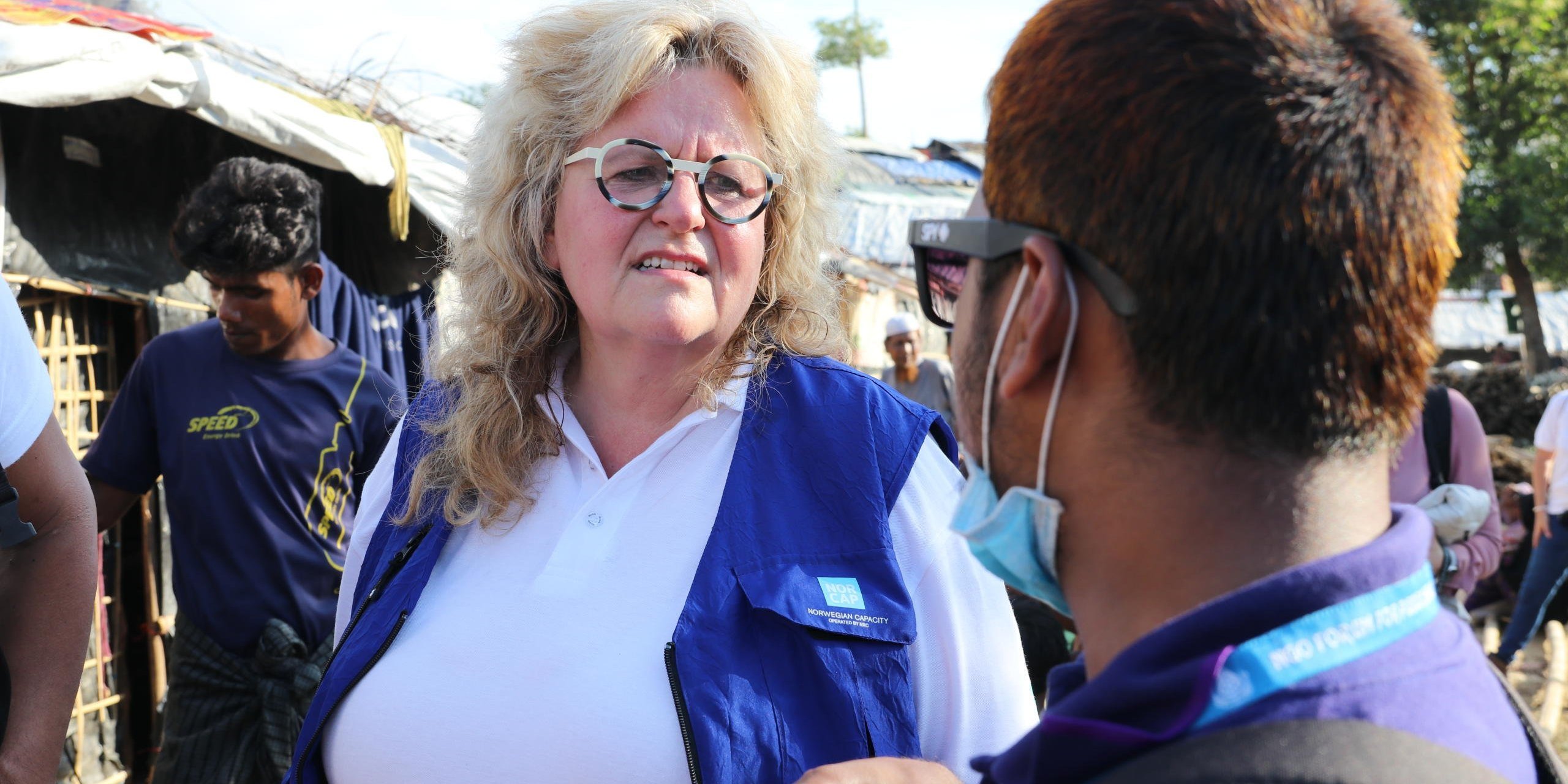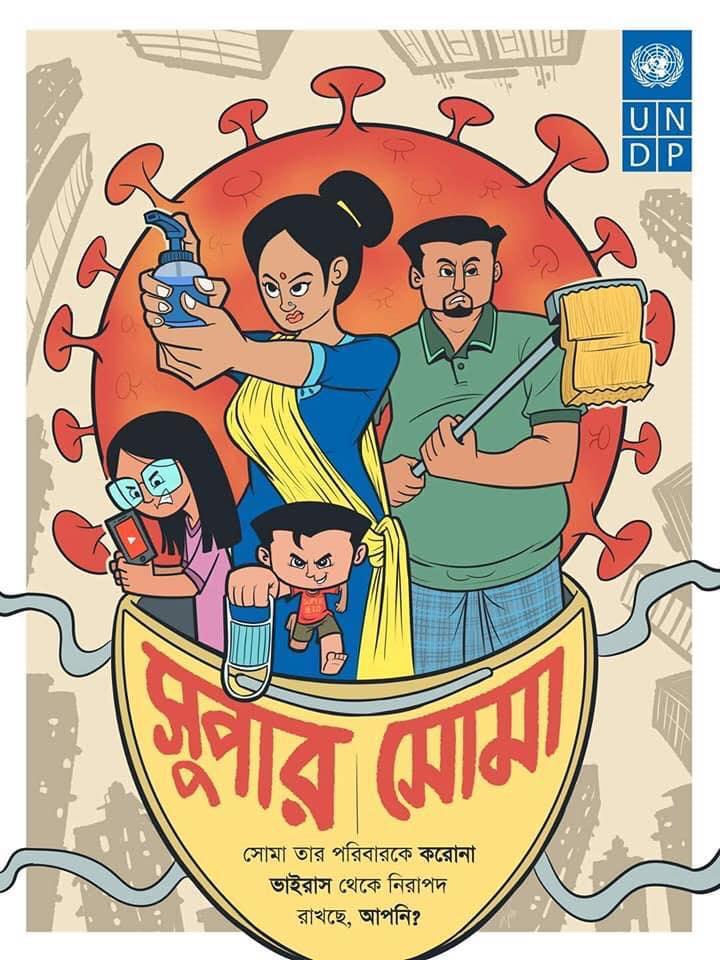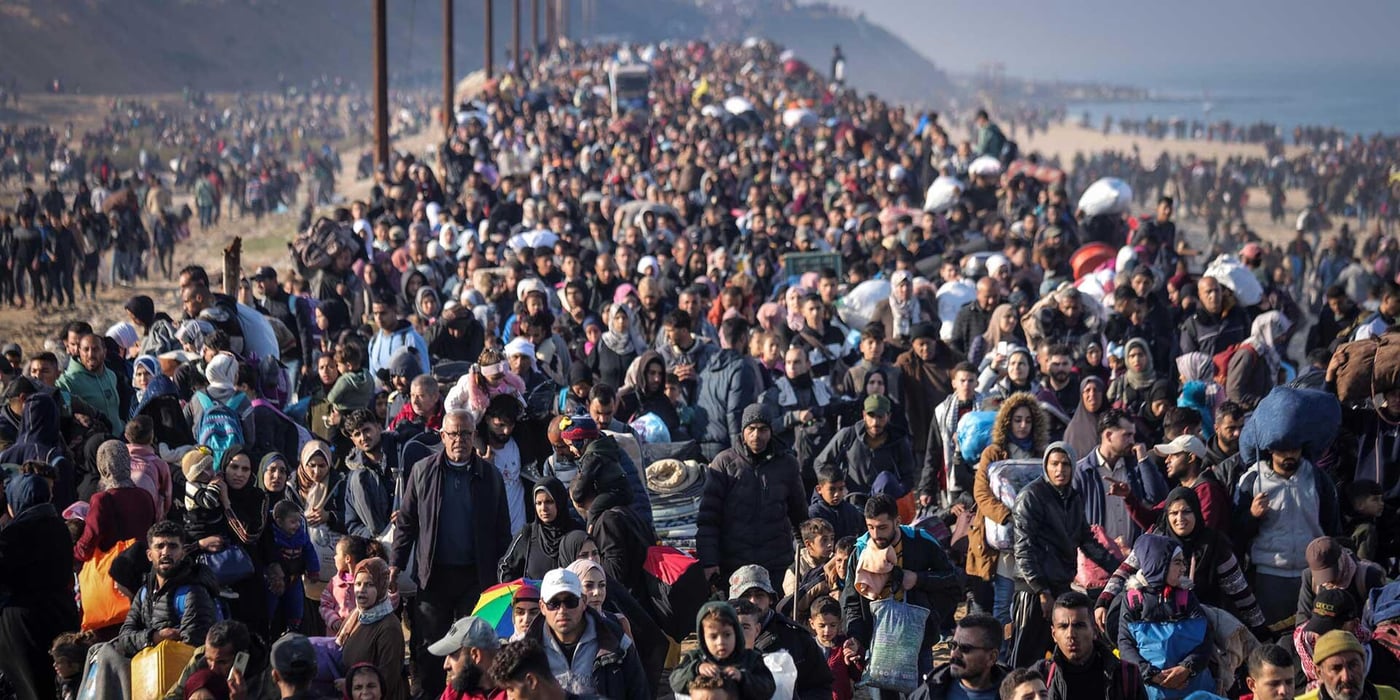
“I am beyond impressed with our experts’ flexibility and ability to adjust to the changing circumstances in this crisis. We are facing a new type of emergency, bringing with it a lot of uncertainty and x-factors. It is a challenging situation for all, but especially for those who are on mission”, says Benedicte Giæver, NORCAP’s Executive Director.
Challenging turn-around
With most staff working from either their real homes or duty station “homes”, keeping in touch with colleagues and performing their regular tasks have been challenging. From the beginning, NORCAP has pushed experts to help their host agencies adapt to the Covid-19 situation and response.
Education specialists have cooperated across borders to find ways to ensure children can keep learning, despite schools being closed. Experts in Burkina Faso have put shelters in place for displaced families and improved access to water and water quality for instance in the Rohingya refugee camp in Bangladesh and in Yemen. They have also distributed protective equipment to World Health Organization personnel on the frontlines and set up handwashing facilities while informing people about the virus, how to protect themselves and prevent spreading it.
Cash specialists have been instrumental in developing a WHO guidance note on how cash and voucher assistance can be used to support vulnerable groups who are experiencing loss of income and increased medical expenses. Experts on gender-based violence have helped ensure that gender and gender-based violence are included in the global Covid-19 humanitarian response plan.
Although close to 90 percent of NORCAP experts are currently involved in the Covid-19 response, Giæver admits it is demanding to get the information needed to thoroughly plan for the next phases of the response.
“We are looking at how we can support specific needs or gaps that have been identified in the response. However, our partners on the ground are busy with the acuteness of the situation, and so it is difficult for them to simultaneously plan for the next phases. With so many experts working from home, it is harder to see the big picture”, Giæver says.

Increasing needs
Although the Covid-19 crisis is affecting people all over the world, people and communities are affected in different ways. Communities and countries that were already vulnerable are facing additional challenges and Benedicte Giæver is particularly worried about the socio-economic and geo-political consequences.
“Many families are losing their livelihoods and are forced to turn to negative coping strategies, such as marrying off their teenage daughters, to survive. Young men are easily recruited to armed groups and lives of crime, because there are few options available to them. There is a risk that this situation will lead to increased conflict and instability in already fragile areas”, she says.
None of the humanitarian emergencies that were present before the pandemic have gone away and many are likely to get worse. A recent report from NRC shows that approximately 650.000 people have been displaced since the Covid-19 protective measures were put in place.
“We are used to working in a certain way when responding to humanitarian needs. With the far-reaching lockdowns and restrictions imposed to reduce the spread of the virus, these methods are no longer possible. The physical space that we operate in has been significantly reduced”, Giæver notes.
Localisation key to long-term support
The key to solving these challenges lies in local capacity building, Giæver believes. During the Ebola crisis in West Africa in 2014-2015, the hardest hit countries developed plans, strategies and ways of coping which also helped them deal with the coronavirus.
Benedicte Giæver says this illustrates the importance of investing in local communities, to build capacity, knowledge and experience that can be used to prevent or prepare for future crises in the best possible way.
“We need to learn from our past experiences and past mistakes. This is key also in this crisis. What could we have done differently? What has this strategy led to? It’s a demanding exercise when you are faced with the current uncertainty, but it is still important that we ask the questions”, she says.
“Just like our experts, who have been brilliant at adapting to the changing situation, the entire humanitarian community needs to turn around and look at what we can do to be better prepared next time.”
Stay and deliver
NORCAP decided early on to maintain their presence in the field, focusing on “stay and deliver” as far as practically and medically possible, while simultaneously making arrangements to bring home deployees from extreme risk duty stations or with pre-existing medical conditions.
While others have chosen to cancel or put deployments on hold until further notice, NORCAP has had close to 300 experts on mission throughout the last three months. About one third are working from their home countries, the rest are in their respective duty stations.
“It is extremely important for us to look after our experts and make sure they feel as safe as possible. We have been in touch with everyone who is currently deployed and maintain a close dialogue with them throughout the period”, Giæver says.
According to NORCAP’s staff care adviser, Ardeshir Baiki, the experts are satisfied with the follow-up they have received so far.
“Some people need more support than others. But when we initially reached out to them, most appreciated having the opportunity to talk to someone”, he says.
Information of vital importance
NORCAP established a crisis management team to handle the duty of care towards deployees early in the crisis. A team of NORCAP staff are in touch with experts regularly. In addition, an internal task force looks at how NORCAP should respond strategically to the Covid-19 crisis.
The team has created a response plan, which focuses on 12 very high risk and 50 high risk countries, such as Burkina Faso, Mali, Niger, DRC, Mozambique and Bangladesh as areas of intervention. The plan identifies cash assistance, gender-based violence, education, clean energy, localisation, community engagement and accountability and protection as our thematic priorities.
Benedicte Giæver highlights the importance of getting the right information from people in the field, in order to know exactly what type of expertise is needed and where.
“Our experts are our eyes and ears out there in the world. The information they provide is extremely valuable to us and gives us a basis for analysis, understanding the context and finding out what opportunities we have for adapting our response and coming up with new and better ways of addressing needs,”, she says.

A cartoon in Bangla explains how people can best protect themselves and others from getting infected with or spreading the coronavirus. (Illustration by UNDP)


